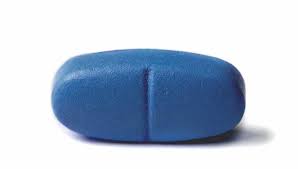Cold sore on the lip? Don’t let cold sores ruin your day. Follow this comprehensive guide to learn how to treat them and prevent future outbreaks—whether with or without your dermatologist’s help.
Cold sores, fever blisters, or herpes labialis, are a viral infection of the skin, usually on the lips, caused by the herpes simplex virus. It’s estimated that at least 50% of the population is infected. Not all people who have the infection develop skin lesions or symptoms. Cold sores can be painful and embarrassing, but there are ways to treat them and prevent them from coming back. Cold sores are part of being human. Don’t be ashamed. Empower yourself with helpful information.

Cold sore causes
Herpes simplex virus (HSV-1 or HSV-2) cause cold sore. The virus causes destruction of skin cells which produces a sore which is a group of fluid-filled blisters, often on the lips, nose or chin. The virus penetrates the skin and takes root in the nerve ending where it lives throughout a person’s life. Some people never develop any blisters or symptoms. Others, who can’t manage the infection as well, get repeated outbreaks of blisters often triggered by sun, trauma, infection, menstruation, or any compromise to the immune system.
Is cold sores Herpes?
Yes.
Cold sore vs angular cheilitis
Angular cheilitis is a skin condition that occurs on the corners or angles of the mouth. Typically is occurs from a yeast infection or skin breakdown from drooling. Technically, one could get a cold sore on the lip in this area, and it would be angular cheilitis cause by herpes simplex, however, it is generally thought to be a different condition.
How cold sores spread
Cold sores spead when skin comes into contact with the virus. This occurs with direct skin-to-skin contact, or through fomites such as utensils, towels, pillow cases, etc.
Do I need to treat a cold sore?
Cold sore generally resolve in 2 weeks without treatment. As they can scar, be painful, unsightly and embarrassing, many people choose to treat them as this helps them resolve faster. Cold sores can also get superinfected with bacteria. This increases the risk of scarring and may require antibiotic therapy.
Use over-the-counter medications to treat cold sores.
Over-the-counter medications can be effective in treating cold sores. Look for creams or ointments that contain antiviral ingredients like acyclovir or docosanol (Abreva). These medications can help reduce the duration and severity of cold sore outbreaks. Apply the medication to the affected area as soon as you notice symptoms, and continue using it as directed until the cold sore has healed.

Prescription treatment of cold sores
Prescription antiviral therapy such as acyclovir, valacyclorvir, or famvir tablets are the fastest and most effective treatment for cold sores. They are most effective if taken as soon as the symptoms start. There is a protocol which involves only two doses 12 hours apart which is safe and easy. If you are prone to cold sores and choose to treat them episodically, make sure you have a prescription from your doctor on hand so you can start treatment as soon as symptoms develop.
Suppressive therapy and other types of prevention
Although cold sores are typically a recurrent infection, most people get fewer and fewer outbreaks over time as their immune system learns to fight the virus.
Other ways to prevent future cold sore outbreaks is to boost your immune system. This can be done by eating a healthy diet, getting enough sleep, and managing stress levels. You can also take supplements like vitamin C, zinc, and lysine, which have been shown to support immune function and reduce the frequency and severity of cold sore outbreaks. Additionally, avoid triggers like excessive sun exposure, cold weather and physical trauma. By taking these steps, you can help keep cold sores at bay.
Another option if someone gets frequent cold sores is to take a prescription antiviral pill daily for 6-9 months to prevent future outbreaks. This is called suppressive therapy. Once the suppressive therapy is complete, people typically get fewer outbreaks even off of medication.
Avoid spreading cold sores to others…or yourself.
Cold sores are highly contagious and can easily be spread to others through direct contact, such as kissing, oral sex or sharing utensils. To avoid spreading cold sores, it’s important to avoid close contact with others when you have an outbreak. You should also avoid sharing personal items like towels, lip balm, and razors. Wash your hands frequently and avoid touching your face, especially the affected area. If you do come into contact with someone who has a cold sore, wash the area immediately with soap and water to reduce the risk of infection.
It’s important to know that people who are infected with the virus that causes cold sores, even if they’ve never had a cold sore or don’t have one a particular time, can still spread the infection if they are shedding virus at a particular time. This is called asymptomatic spread. People are much more contagious, however, when they have an active cold sore.
If you have skin conditions such as eczema, psoriasis, or ichthyosis you can also more easily spread the herpes virus to other areas of your own skin. In fact, widespread skin infection with the cold sore virus in people with eczema, known as eczema hepeticum, can cause scarring and is a potentially life-threatening condition. People can also spread the virus to other parts of healthy skin, usually in the setting of intense contact such as with wrestlers or sexual activity.


